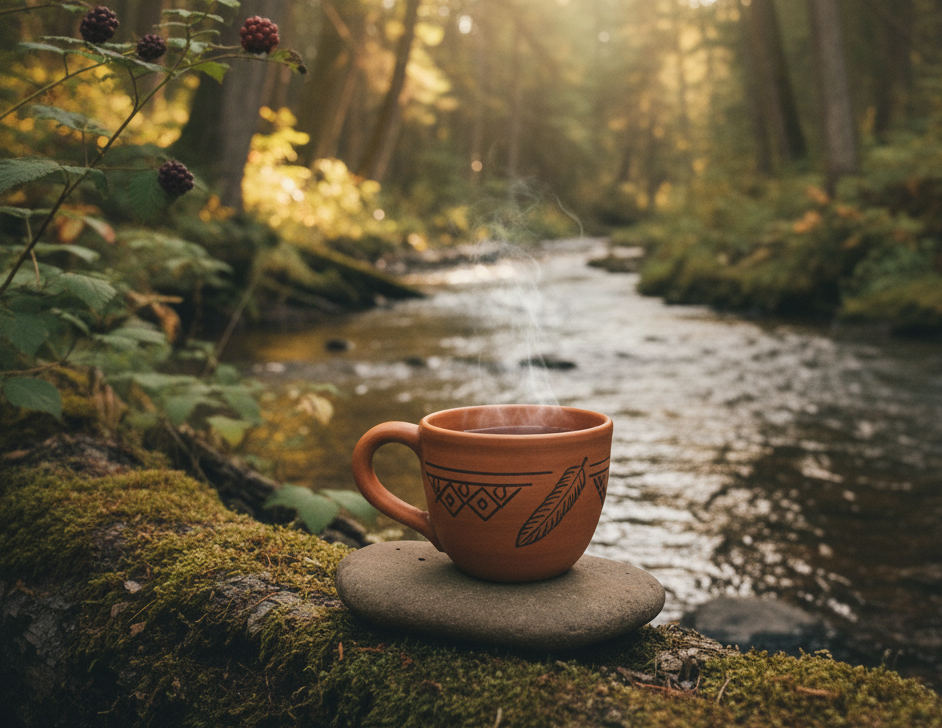My childhood was a journey between two realms: the tiny hamlet of Shannonville, nestled on the outskirts of Tyendinaga Mohawk Territory, where my family resided, and my grandparents' welcoming home within the territory itself.
This oscillation between locations became the bedrock upon which I built my identity as Kanyen’kehá:ka (People of the Flint) and Michi Saagiig Nishnaabeg (Mouth of the River People).

Roots of Identity
The profound words of my maternal grandfather — reminding me that the blood of our ancestors courses through our veins — posed a complex puzzle for me as a child.
I was acutely aware of my identity as an Indian (Indigenous) person, distinct from the non-Indigenous folks around me. Yet fully grasping the depth and breadth of this identity was a path I would navigate over time.
But in truth, this journey of self-awareness is not unique to me. It is a universal path that all young people, regardless of background, embark upon.
There is a stage in life when we look to the world around us for affirmation, guidance, and the spark of understanding that shapes who we are. And too often, as we grow older, we move further away from these defining moments of innocence and self-discovery.
We forget the clarity of youth — the untainted creativity and boundless curiosity that once shaped our sense of possibility.
A Lesson From the Earth
At the age of 13, during a defining moment, I confided in my maternal grandmother about my struggle to understand my place in our lineage.
Her wisdom was both simple and transformative: she urged me to walk barefoot on the earth, to feel the cool, textured soil beneath me, and to recognize the deep, unbreakable connection we share with the land that nourishes and sustains us.
As I reflect on midlife, I see more clearly how this simple act carried profound wisdom.
Through it, my grandmother revealed that our connection to the earth is more than just a link to nature — it is a conduit to our ancestors, granting us access to their wisdom and strength.
This bond extends beyond heritage; it is the very foundation of our resilience and identity. It is also the wellspring of creativity, the birthplace of ideas, and the source of inspiration.
The Wisdom of Youth
Reflecting on this experience, I see it now as more than just a lesson in cultural understanding — it was a lesson in honouring the innocence of youth itself.
When we are young, we are open to these profound lessons. We listen with curiosity, question with wonder, and experience life with an unfiltered sense of awe.
But as we grow older, society often teaches us to prioritize logic over imagination, efficiency over reflection, and productivity over presence.
The Consequence of Disconnection
In our discussions about the sorrow and strife caused by societal disconnects and colonization — particularly by those detached from their ancestral roots and the land — my grandmother identified a lack of connection to Mother Earth as a primary source of discord.
Many, she observed, live as if they are “three feet above the ground,” disconnected from the earth’s vitality and blind to the impact of their actions on our shared environment.
Beyond the ecological consequences of this detachment, there is something deeply personal at stake: the loss of memory.
When we forget the simple joys of our youth — running barefoot through grass, creating without boundaries, dreaming without fear — we lose touch with the essence of who we are.
When societies collectively move away from their roots, inspirations, and earliest forms of knowledge, they become untethered, making decisions that compromise the well-being of the land and people that sustain them.
Returning to the Seed
My grandmother imparted the critical lesson that being grounded is an expansive concept.
It’s about cultivating a deep awareness of our responsibility to make decisions that benefit all forms of life and the environment.
But it is also about returning to the fundamental truths we knew as children — the value of curiosity, the importance of connection, and the simple joy of feeling the earth beneath our feet.
This disconnection from the land and loss of identity is a pervasive issue, gradually eroding our collective connection to our ancestors, earth, and youthful wisdom.
But my grandmother's wisdom also carried a call to action — one relevant to everyone, regardless of background.
A Universal Call to Reconnect
She firmly believed in the restorative power of reconnecting with the land, advocating for the simple yet profound act of walking barefoot to genuinely feel the earth beneath us.
She was convinced this connection has the power to heal, rejuvenate, and reignite our collective responsibility toward our planet and each other.
But beyond that, it is a call to reconnect with ourselves — to return to our youth’s innocence, remember the first seeds of our creativity, and honour the teachings that shaped our earliest understandings of the world.
We must all, in our own way, return to the seed — the seed of knowledge, the seed of our identity, and the seed of our youthful curiosity.
In remembering, we honour our past and ensure that our youth’s wisdom continues to guide us forward.
Mindful Moment
Take a quiet moment today — maybe with a cup of Kebaonish tea in hand — to reflect, reconnect, and remember where your own seed of inspiration began.
Blog by Rye Karonhiowanen Barberstock



Share:
Lessons from the Creek: Reflections on Childhood and Otter Friends
Lessons from the Land: A Lighthearted Reminder from Nature